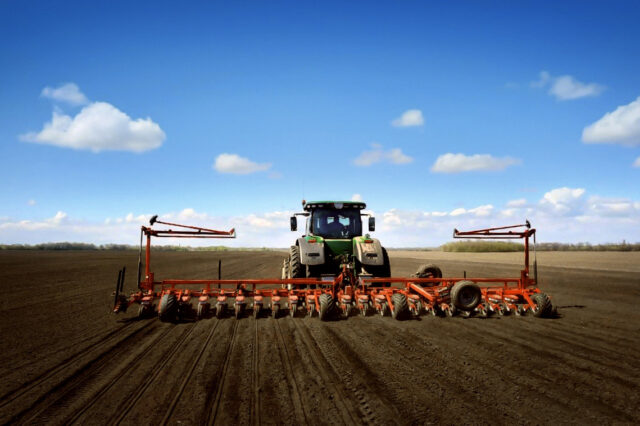War
#standwithukraine
Half a year after the war in Ukraine broke out, colleagues and farmers describe how they nevertheless continue to work under extremely adverse conditions to ensure that people are kept fed.

Dmytro Baranov
Witnesses of occupation and terror
Ryzhenko Sergii, the owner of the Vitchyzna-Tynytsia sugarbeet farm in Chernihiv, witnessed Russian tanks coming into the region: “We were bombed and all these tanks standing at close distance just added to the feeling of misery and desperation.”
The farmer realized it was already high time for sowing, but he could not risk it: “It wasn’t until the tanks left that we cleared the fields from the leftovers of rockets and I asked my KWS sales rep to deliver CONVISO® SMART seed. We couldn’t sacrifice people or the harvest, which might have been deliberately destroyed later.”
Semyroz Yurii, chief agronomist at the Pratsia Stolne farm, and his team experienced fear and anxiety trying to supply essential materials: “The town of Chernihiv was blocked, all bridges destroyed and roads to the town mined. The only available route was by boat over the river – so we used it to supply seed and fertilizer to the farm.”
A lot of farms in the region were either looted or their machinery was destroyed. Dmytro Baranov, KWS regional head for corn and sunflower in the east, recalls how truck drivers managed to deliver the seed: “The first truckload was supplied before the war, and we had to take delivery of the second batch after the occupants left. Trucks took forest paths to get to us, since there were no roads left – a stressful and dangerous job to be sure.”

Risking their lives: Farmers tended their fields despite the war.

Vitalii Plotka
Breeding trials under threat
Vitalii Plotka, KWS manager of the breeding station in the Dnipro region, tells how routine seasonal tasks changed since the early morning of February 24th: “For two weeks we were literally paralyzed, then started to make some plans regarding the regions where we can still organize our trial plots, where it’s relatively safe.”
Only sunflower seed was delivered for trial purposes at that time, and there was no access to other seed supplies. There were two main obstacles to the start of the breeding trials – a lack of fuel, the curfew from 7 p.m. to 6 a.m. the next day, and lots of checkpoints on the way: “I admit that we had to risk it all and go out into the fields during the curfew as the tasks we had to do after dawn or early in the morning couldn’t be neglected.”
Military aircraft usually fly very low over the fields and you barely have seconds to escape: “It’s scary to be on the fields tending the crops. There were times when we just threw the seed down and ran away because the plane flew too low.”
War changes values – you want a safe place to sleep during a working trip, to access fields without fear of land mines: “The scariest thing is to get accustomed to the war and pay less attention to air-raid alerts.”

Olha Serhiienko
Survival of animal husbandry: in need of fodder
Olha Serhiienko, KWS’ sales representative for corn and sunflower in the Cherkasy region, shares her experience of the determination of and cooperation between farmers who have livestock in addition to their grain business and grow silage corn for animal feed during times of destruction and cattle being slaughtered by the enemy: “The main goal of farmers who have cattle right now is to save their farms and feed people. They sow their fields despite air-raid alerts and shortages of fuel and fertilizer.”
eed people. They sow their fields despite air-raid alerts and shortages of fuel and fertilizer.” The region experienced the bombing of railway routes, river dams and bridges, and only people’s determination and will could save the situation: “Everybody cooperated and helped in transportation: We as a seed supplier relied on distributors and in some cases had to go and deliver seed ourselves. Farmers cooperated with each other to get fuel and supply milk to people who were unable to buy it.”
For Olha it was amazing to see all the hard work and responsibility that livestock farmers showed in order to feed people: “In spring, we started delivering seed to one of the biggest farms in the region. They simply need more silage and their dedication to persevere with production, feed people and save local farming is totally remarkable.”
© KWS SAAT SE & Co. KGaA 2025











